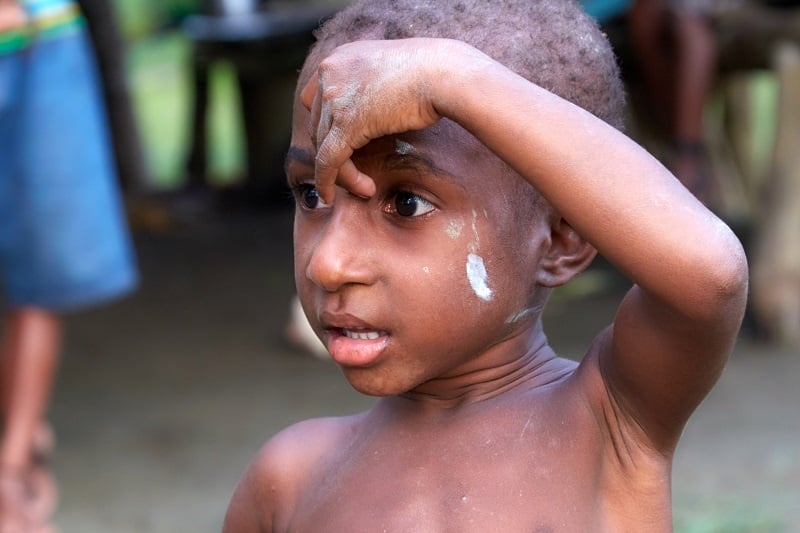Papua New Guinea is unfortunately one of the countries in the world with a high mortality rate for newborn babies. Most babies are born at home in remote areas without the help of nurses or doctors. Babies born far from clean water, electricity and medicine have an increased chance of infection. Sadly, for some families who are already deep in poverty, the addition of another child is the addition of another burden—a burden that needs lots of care, shelter, food and, eventually, school fees.
I was happy to know that this year the Church in Papua New Guinea decided to focus on the well-being of children. No matter where you look in in this country there are many, many children. For a long time, I was convinced that all the children here were happy. But the closer I looked, the more I realized I was wrong.
Very often the children are neglected. They go hungry and become malnourished. They are exploited or sometimes abused. Most of the time they look after themselves and are forced to be independent from their early years. On their own they are responsible for fishing, working in the garden and finding food in the bush.
Once while driving I came across some boys carrying what they called “flying foxes” on a stick (I knew them as bats). I asked them curiously where did they find these “flying foxes”? Thinking that I wanted some “flying foxes” of my own, they told me I could get them down by the big tree, where there were plenty. I didn’t go.
There was not always such an abundance of children in Papua New Guinea. Many customs in days of old had a side effect of family planning. Frequent tribal wars discouraged having children. Before going into battle, in order to remain strong, the men abstained from being with a woman. In turn, during battle the women who were strong and not pregnant were able to grab their children and run from the war zone. In more peaceful times, planting and tending new gardens kept the man absent from the family home for seven to eight months of the year. These traditions are gone, leaving Papua New Guinea with so many children who must fend for themselves.
Like anywhere in the world, life in Papua New Guinea can sometimes make me mad. One day I was going for a swim at the beach. On the weekend the beach gate charges a fee for entrance, but not so during the week. As I crossed the gate that day a boy came running after me and angrily demanded a fee. I began to argue with him that I would not pay because it was not the weekend. Near me were some children—they knew I was a priest. They came closer, pulled some coins from their pockets and said, “Maski pater peim em,” which translates to “Father, do not argue. Pay him.” They were ready to give their money to help me out of trouble.
To this day I am still impressed with those children and their readiness to help me using their own money—even though they barely had any. It shows me that the heart of a child here in Papua New Guinea, and hopefully around the world, remains loving and kind and open to helping mankind.








